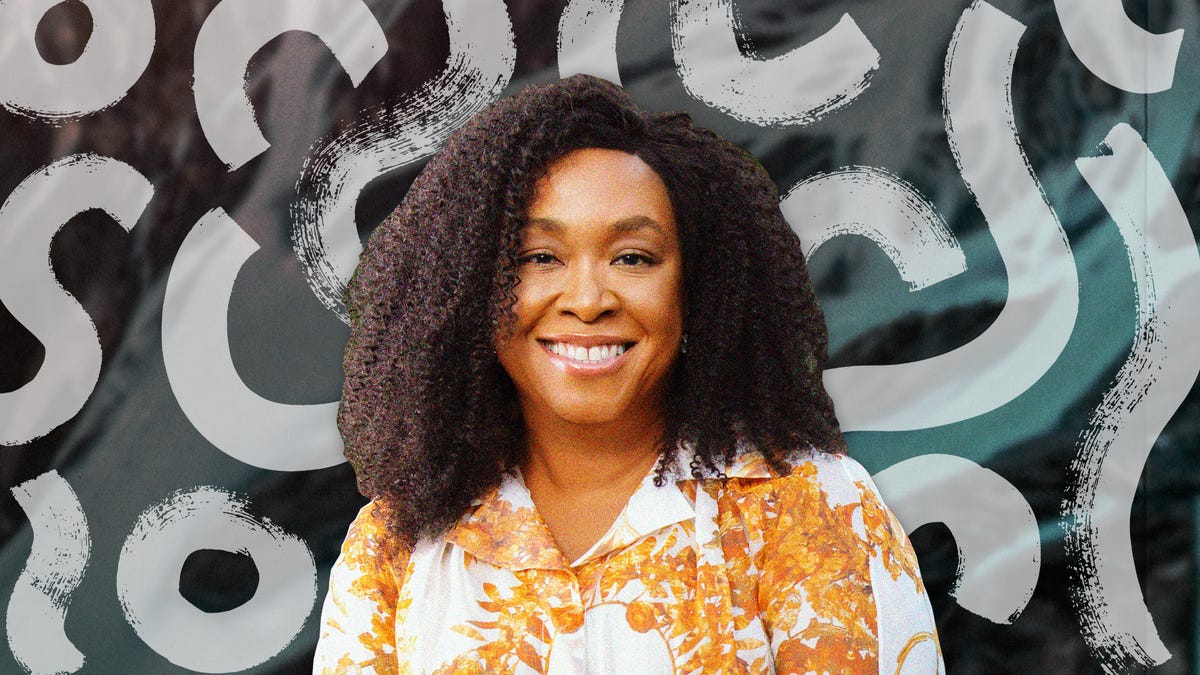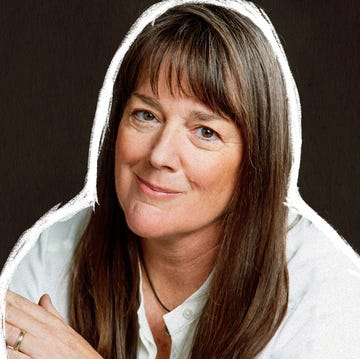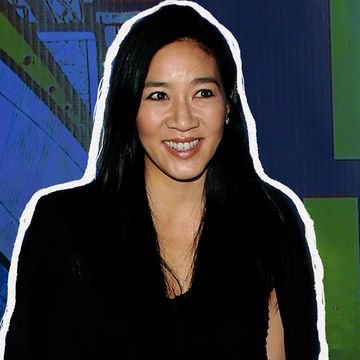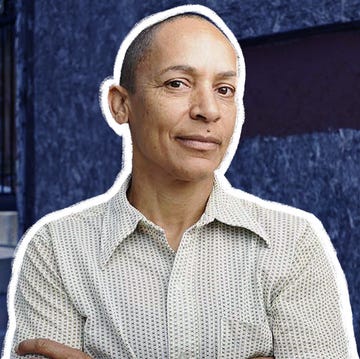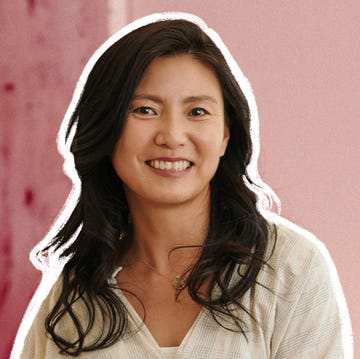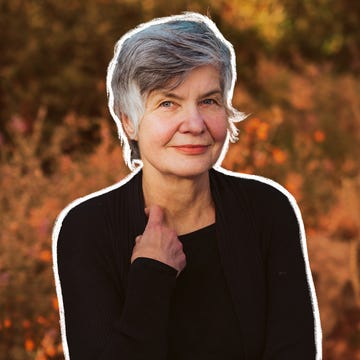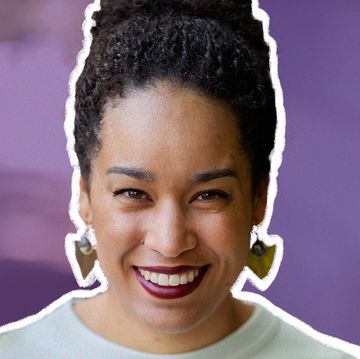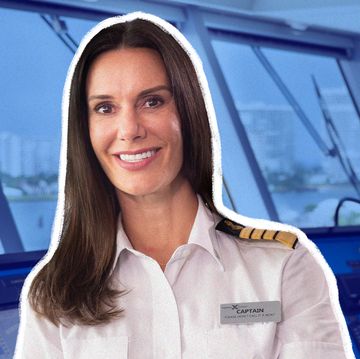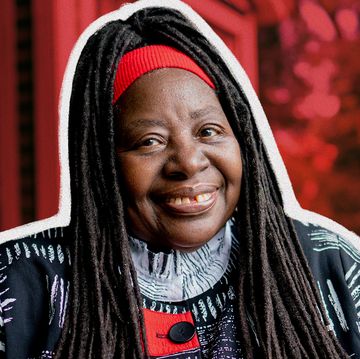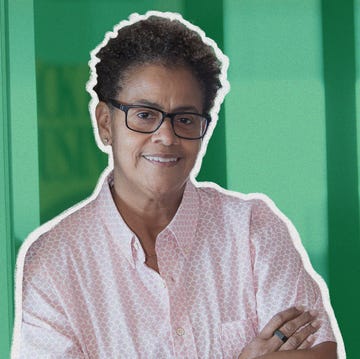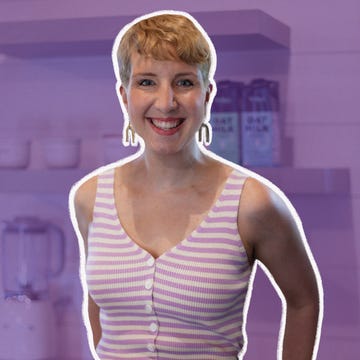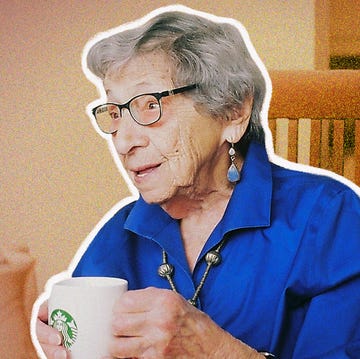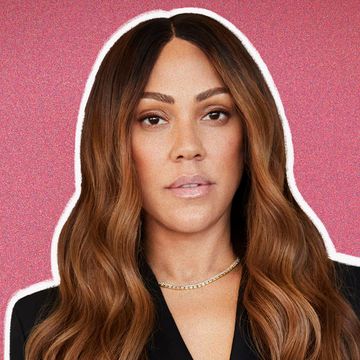In the ongoing Shondaland series Head Turners, we meet interesting women from every facet of life who are crushing it in their careers. From artists and tech mavens to titans of the boardroom, these women are breaking barriers, and they’ll share how you can too.
A week before her induction into the National Soccer Hall of Fame in late April, soccer coach Jill Ellis said she didn’t see her life as “fully accomplished.” She led the U.S. Women’s National Soccer Team to two World Cups in 2015 and 2019 as well as eight UCLA squads to the Final Four, and her career seems like the definition of fully accomplished. And yet, there’s still more to be done.
When she started her coaching career in the late 1980s as an assistant at North Carolina State, there were practically no women in her field. And now, as team president of the San Diego Wave FC in the National Women’s Soccer League, Ellis can build a team on her own terms, ensuring that female coaches get their long-awaited due. But it was no easy feat to get to this place, and as women’s soccer struggled for acceptance in the sports community, so did Ellis, who led a carefully constructed life in the closet that agonized her. Even as she reached the highest echelons of women’s soccer, Ellis grappled with her mental health — until she met her wife, Betsy Stephenson.
Now in her 50s, Ellis has found a new level of personal happiness, settling down in San Diego with their daughter, Lily. And as a newly minted member of the National Soccer Hall of Fame, Ellis understands how being forthright about her own struggles can be the key to making someone feel seen — and ultimately save a life.
Ellis spoke with Shondaland from her office in San Diego, discussing her own path toward coaching women’s soccer, her experience as one of the only women in her profession, and how, after years of secrecy and shame, she finally emerged as herself.
PETE CROATTO: There have been a lot of firsts in your life: first person in your family to get a white-collar job, first to go to college. You were the first coach for the University of Illinois women’s soccer team. Does it get tiring being the first?
JILL ELLIS: [Laughs] No, it doesn’t. When I actually reflect on some of the situations, it feels good to try and maybe carve out a path for those that come after you. When you reach a point in my life where I’m at right now, it’s part of why I took this job — it’s almost more important for what you do for those that come next. But it’s a little bit of a sad statement when there are not more doing it. I do recognize I’m probably one of the more senior statesmen, but right now part of my drive is how do we create more opportunities? How do we get more women in coaching? How do we have this not be an anomaly and have it be more frequent? It’s an honor, but it’s also something — you want to see it just be normalized.
PC: Are you encouraged by what you’re seeing in terms of opportunities for women in soccer?
JE: What I see is definitely a trend. It was not long ago that rarely players at a high, high level go into coaching. It was one in 25. Now, I think you see more women because it’s a more viable career. You see it in Europe; you see it [in the United States]. Our head coach, Casey Stoney, being one example. So, that’s encouraging. Karla Thompson is head of my development. She runs the mentorship program for U.S. Soccer that I helped start. And [yesterday] I popped in — she was talking to a couple of B candidates. And that was encouraging to see female coaches taking their licenses, getting their accreditation. I do at times worry. I want to see our women succeed, so I want to make sure that there’s enough support around them to be successful and not just being hired based on gender, because that’s a lot of pressure. It should be making sure people have the experiences to be successful when that opportunity presents itself. I see a positive trend.
When I came into the NWSL in this role, I was speaking with a president of another team, and he said, “Are you gonna hire a female, Jill, for your head coach?” I said, “Yeah, of course I am.” He said, “I just don’t know that there are that many good ones out there.” And I said, “Well, there are if you look.” [Laughs.] I think we’re starting to get to that: Look at the success of Sarina Wiegman in Europe and the last few coaches to win the World Cup. I mean, women are successful. And so, it should again not be this rarity that they get selected for big positions. So, I’m encouraged by what we’re seeing in terms of this. But back in the day, in the ’80s, it wasn’t even really a career path. In fact, it wasn’t one that I thought I had an opportunity at.
PC: Before you coached, you were a technical writer. What did you learn at that job that helped you as a coach?
JE: I think what it helped is now as a coach I’m comfortable walking into a locker room or walking into a boardroom. There is a certain etiquette and things that you see in a business environment that helped me navigate two different scenarios. I tried to put my head down, do a good job, but pretty quickly I got promoted to teaching. So, it kind of gave me some confidence. The other thing that I probably took away was it’s not where I want to be forever. It was a big lesson. Is this where I see myself? Is this where I’m gonna get joy every day?
PC: Did you ever feel that way about soccer?
JE: No. I found it’s just such a simple barometer: I found myself smiling a lot, and I think at heart, I’m a people person, and I like to teach. There are hard moments, tough moments that make you question, but not the passion for what I was doing in terms of coaching and trying to help bring people together. I mean, it’s so simple. It’s bringing people together. It’s trying to help them achieve their ambitions. That was fun to me. Building teams is fun, and then you couple that with just the passion I had for the sport, watching it since I was, like, 3 years old. It was just this kind of perfect blend. Again, there were hard moments, but I didn’t feel like it was a drag ever. That’s why I constantly looked at more challenges because I didn’t want to just be in one situation. I like the idea of change because it makes you uncomfortable, and you learn more.
PC: You’re openly gay with a wife and a child. Would it have been harder to have that lifestyle in corporate America than in women’s soccer?
JE: Back in the day, I think it would almost have been easier to have been in corporate America because rarely do the two have to mix. In sports, your partner comes to the game. Your kid comes to the game; she runs on the field when she’s little. Whereas in corporate America, I think you could probably keep things more compartmentalized. You go to an event; you don’t have to bring a spouse. People don’t have to know your world outside. It’s a much more public life in the scope of athletics and sports. So, I would say initially it would’ve been easier in corporate America. But now, the more the change in visibility and acceptance, my hope is it would be easier in either place. It was very, very hard back then because I thought it was going to be something that potentially could end my career, because it was just an incredibly different climate back then. It was very challenging to have a dual life.
PC: When did that fear evaporate? Or did it evaporate?
JE: Betsy was in Atlanta as the athletic director at Emory, and we had made a decision to adopt a little girl. That was the point of “My God, I can’t expect this little person to worry about what she’s gonna call me.” This is not fair to her. Had we not had Lily, I don’t know. … When I met Betsy, it was someone that was comfortable with this life. She was in high-level athletics and still was closeted, but internally she was comfortable with being gay. I wasn’t. I was fighting it. I had a lot of struggles and really thought, honestly, there was something wrong with me. I was engaged — broke that off — to a guy. It was this constant turmoil. And I think when I finally met Betsy, it was just kind of this Zen moment of like, “Look, you can be at peace with this.” Just internally. And then, that helped me navigate the external [reality] of being out, being a gay mom and a wife. I like to say she kind of saved my life because it was just very, very hard. And I just suddenly was at peace. That’s the easiest thing I can say.
PC: I can’t imagine what it was like to live with that burden.
JE: I lacked so much confidence. You never want people to even look at you. I remember, I think it was in 2000, I got some national coach of the year award, and I just didn’t want to go to this thing and get the award because I didn’t want people to talk about me, speculate. It was all-consuming. I grew up in England, and certainly even in America, there was something wrong with you if you were gay. It just wasn’t accepted. And so, I lacked confidence. I think the times where I felt a little bit free was when I was in front of my team, when I was in that kind of bubble. I was able to be a coach and just a person. But in the public eye, even after games, I would kind of dip out quickly because I didn’t want to open myself up at all. I struggled for many, many years with depression. It took its toll. Listen, do people probably know? Looking back, you’re probably like, “Who are you kidding?” [Laughs.] The reality is you felt like you were managing it. I just felt like I had to manage my life, so I did the best I could.
PC: When did you get comfortable being in the public eye?
JE: That first day that I actually had Lily in my arms, and I came out to my team [at UCLA]. I mean, it was a physical response. These players hugged me and started crying; it was just this moment of having years and years of carrying this quote-unquote burden. It was so immediate. I called [Betsy], and I said, “I just came out to the team.” And she’s like, “Wait, wait, what?” And then, I ran upstairs to the athletic director’s office, my boss; I told him. When you’re gay and you’re hiding something, the people you most want to not disappoint are those people closest to you. If they were okay — and they were people that cared about me — I was okay with the rest of the world at that point because it was those people that I genuinely cared about. I was also then working with the U.S. team as an assistant. In that environment, gradually you could start to see that some of the players were starting to come out. I thought that was incredible. It just started to turn the tide.
PC: I know you’re a mental health advocate. What you’ve talked about could only result from being very keyed in to that. How have you gotten to that point?
JE: My own personal journey, I haven’t really spoken about. But yes, it was medication and therapy. When I was coming out of college, there were some really dark days. It’s hard to live with something you don’t like, and it’s you. I didn’t like myself because I was gay, but I didn’t want to be gay. I thought there was something wrong with me.
This is how I look at it: We come into this world, and we’ve got this suit of armor. We’re so pure when we come into this world, and then as we go through life, we get these dings and these dents, and maybe a piece of armor is removed. And then, we spend our lives kind of compensating that we don’t have a mask; we don’t have a breastplate or armor. So, we fill that in, and that’s how we cope and manage. I think the reality is there’s not one person in this world that hasn’t had to manage an incredibly hard time or a tough moment. But what I think I realized is I’m not broken. Part of what I wanted to advocate for is I want that kid that’s sitting there in high school that’s just not sure if it’s all worth it to know that there is a light at the end of the tunnel.
I used to write a lot. Just journal, poetry, whatever. Vignettes and s--t like that. I remember just reminding myself the sun is up there somewhere [laughs]. At some point, it’s gonna hit me. I worry about where we are right now politically. And losing lives because you are not accepted, or you don’t like who you are, is the utmost travesty. I never really considered myself to be even a role model for women. I just always tried to put my head down. And now, I’m like, man, if sharing a story or telling your journey in some way lets someone see that it’s going to be okay, we have to dip into that.
This interview has been edited for length and clarity.
Pete Croatto is a freelance writer based just outside Ithaca NY, whose writing on sports and pop culture has appeared in many publications, including The New York Times, The A.V. Club, GQ.com, Grantland, and InsideHook. He's the author of From Hang Time to Prime Time: Business, Entertainment, and the Birth of the Modern-Day NBA . Follow him on Twitter, @PeteCroatto.
Get Shondaland directly in your inbox: SUBSCRIBE TODAY



